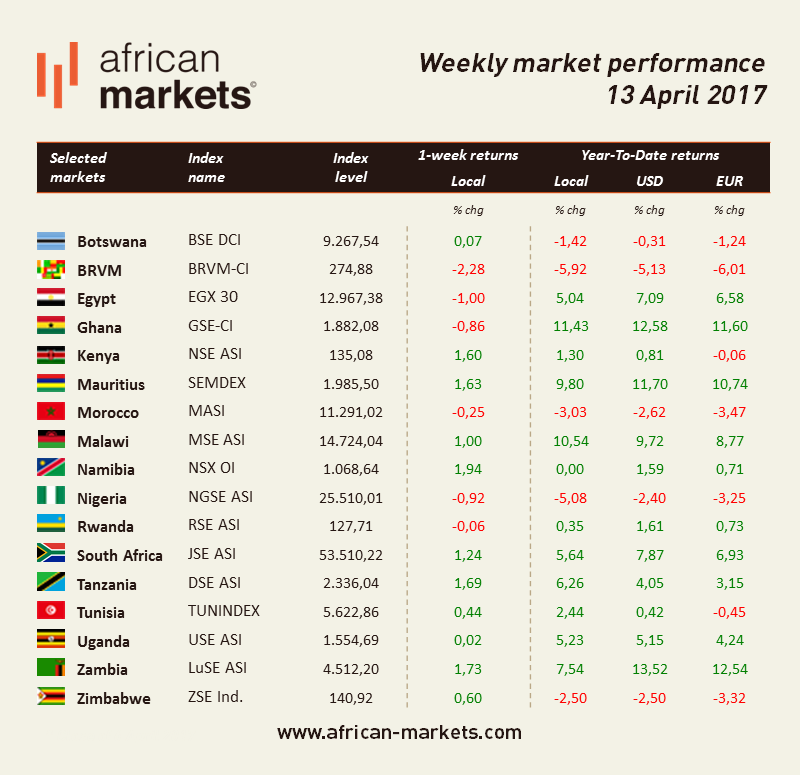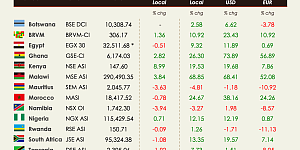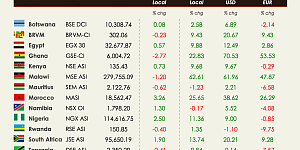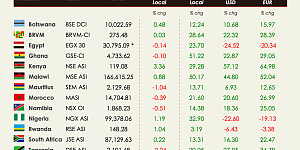It was a quiet week on African markets with most of the indices remaining on positive territories.
The USE gained 0.02%. The central bank of Uganda cut its benchmark rate for the seventh consecutive time by 50 basis points to 11% to stimulate economic growth and boost banks’ lending to the private sector. The bank expects core inflation to remain around the medium-term target of 5% and states that there is still room for further easing of the monetary policy. According to the central bank’s governor, economic growth in the fiscal year through end-June is unlikely to hit the 4.5% target. Private sector lending has decelerated since Ugandan lenders were asked to increase their minimum core capital to 10% of risk-weighted assets from 8% due to the collapse of the under-capitalized Crane Bank. in October.
The JSE is still showing resilience and gained 1.24%. Fitch Ratings downgraded the Long-Term Issuer Default Ratings (IDRs) of five South African banks to ‘BB+’ from ‘BBB-‘. The banks involved are Absa Bank Limited, FirstRand Bank Limited (FRB), Investec Bank Limited (IBL), Nedbank Limited (Nedbank) and Standard Bank of South Africa (SBSA). Fitch has also downgraded the Long-Term IDRs of four bank holding companies – Barclays Africa Group Limited (BAGL), Investec Limited (IL), Nedbank Group Limited (NedGroup) and Standard Bank Group Limited (SBG) to ‘BB+’ from ‘BBB-‘. The downgrades follow South Africa’s sovereign Long-Term Foreign- and Local-Currency IDRs downgrade to ‘BB+’ from ‘BBB-. The Outlooks on all banks’ Long-Term IDRs are Stable, in line with the Outlooks on the sovereign’s Long-Term IDRs.
EGX30 saw a mixed performance this week (-1%), which saw on its first day, the Palm Sunday terror attacks in Tanta and Alexandria that resulted in declaring the state of emergency across the country for three months. Excessive selling by Egyptian investors followed as a result, while on the other hand, Arab and foreign investors leaned towards buying.
The NGSE lost 0.92%. Nigerian Oil Minister announced the country will recover oil production over summer as it finishes maintenance and repairs. The country targets 2.2 million barrels a day. The Minister expects the country to join the OPEC measure once it has fully recovered from output lost, which could happen as early as October or November, and meanwhile he expects the other members to extend the cuts to keep oil prices above $50 a barrel. In parallel, Nigeria will start to reimburse a $5.1 billion debt owed to international oil companies this month.



























































